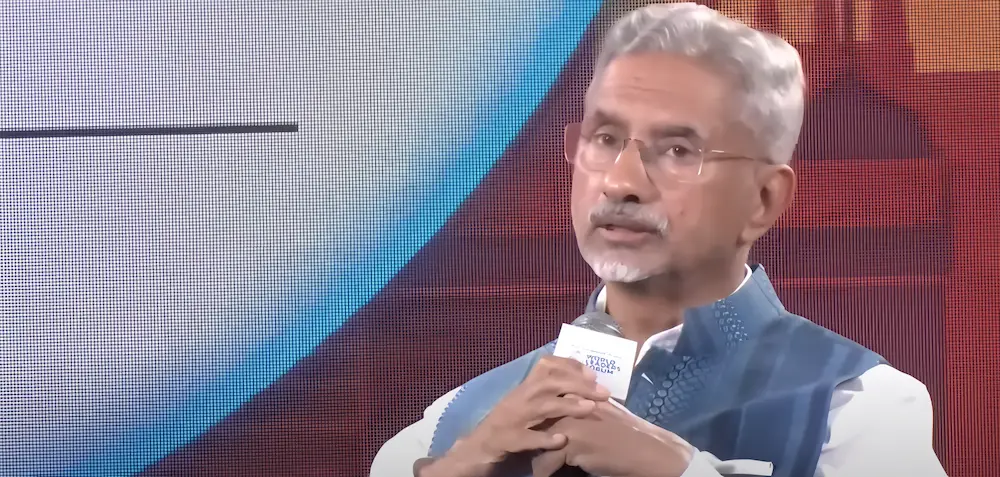
Jaishankar blasts U.S. tariffs on Indian goods over Russian oil trade, defending strategic autonomy
Why Jaishankar’s Bold Stand Against US Tariffs Signals a New Era in India’s Foreign Policy
Strong Words from India: Jaishankar Speaks Out
On August 23, 2025, India’s External Affairs Minister, Dr. Subrahmanyam Jaishankar, made headlines at the Economic Times World Leaders Forum in New Delhi. He strongly criticized the United States for imposing steep tariffs—up to 50%—on Indian goods, linking them to India’s continued purchase of Russian oil.
Jaishankar called the move “unfair and unjustified,” accusing the U.S. of double standards. He reminded the audience that in 2022, the U.S. had encouraged India to buy Russian oil to help stabilize global prices. Now, the same country was penalizing India for doing exactly that.
His tone was firm and unapologetic: “If you don’t want to buy oil or refined products from India, don’t buy it. Nobody is forcing you.”
Double Standards in Global Trade
Jaishankar didn’t hold back when pointing out what he called “Western hypocrisy.” He explained that while India was being penalized, other major buyers of Russian oil—like China and European countries—were not facing similar tariffs.
“If the issue is oil, then why are bigger importers like China and Europe not being targeted?” he asked. He noted that Russia-Europe trade is much larger than India-Russia trade, yet Europe continues to do business without facing U.S. penalties.
He argued this was a clear example of selective treatment: “The same arguments used against India are not applied to others.” He also clarified that India’s exports to Russia had grown, but not dramatically—certainly not enough to justify such harsh trade measures.
His message was clear: India will not accept being singled out while others are spared.
Watch the full speech here: Jaishankar’s Speech on US Tariffs
Defending India’s Strategic Autonomy
One of the key points in Jaishankar’s speech was India’s right to make decisions based on its own national interest. He emphasized that India’s energy choices are guided by strategic autonomy, not by pressure from other countries.
“Strategic autonomy means we decide what’s best for us,” he said. “We are not here to follow someone else’s rules when it comes to our economy and our people.”
He also defended India’s farmers and small producers, calling them the backbone of the economy. “We have red lines in trade negotiations. Protecting our farmers and small businesses is non-negotiable.”
India’s stand, he explained, is not just about Russian oil—it’s about fairness, independence, and respect in global trade.
What’s Next for India-U.S. Relations?
Despite the strong words, Jaishankar made it clear that India is still open to dialogue. He said trade talks with the U.S. are ongoing, and both sides are still communicating.
“We are two big countries. The lines are not cut,” he said. “People are talking, and we’ll see where it goes.”
However, tensions remain high. The U.S. has already imposed a 25% tariff, with another 25% set to take effect soon. A planned visit by U.S. trade negotiators to New Delhi was called off, adding to the uncertainty.
Jaishankar’s speech was not just a defense—it was a warning. India will stand firm, protect its interests, and push back against unfair treatment. Whether this leads to a breakthrough or a deeper trade conflict remains to be seen.
Final Thoughts: India Stands Tall
Dr. Jaishankar’s speech was a powerful reminder that India is no longer willing to play a passive role in global affairs. With confidence and clarity, he defended India’s choices and challenged the world to treat all nations fairly.
As global trade becomes more complex and political, India is making it clear: it will not be bullied, and it will not compromise on its core values. Whether it’s oil, tariffs, or diplomacy, India is ready to speak up and stand tall.
Also read:
Stay informed with the latest news and updates—only on Rapido Updates.
1 thought on “Jaishankar Slams US Tariffs: India Defends Its Oil Trade and Strategic Freedom”
Comments are closed.